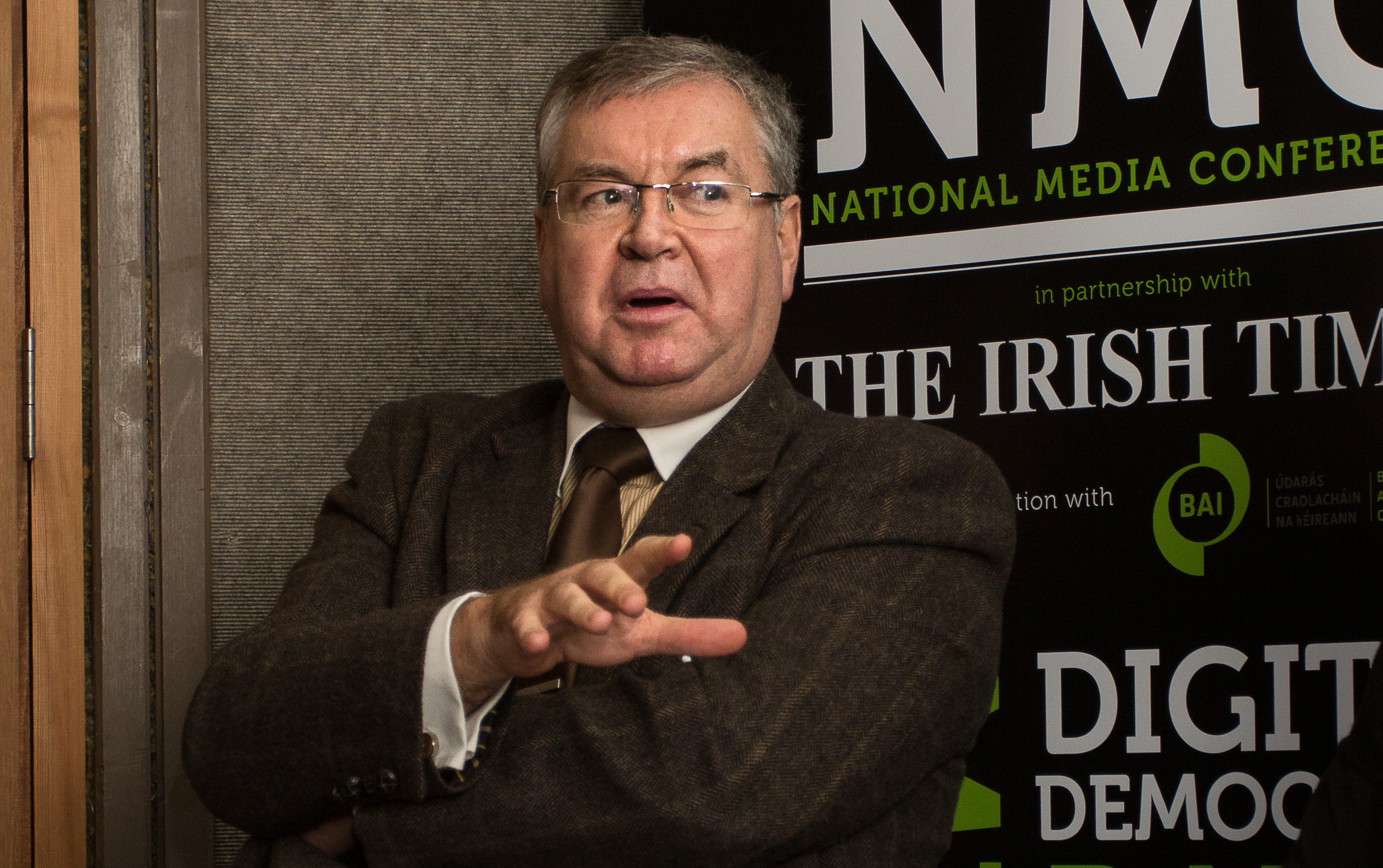Staff Writer
The Irish Times editor, Kevin O’Sullivan, has warned student journalists not to engage in “muck-raking.” Student writers have a tendency, O’Sullivan claimed, to be “delightfully oblivious” to defamation rules. Their actions could put student media at risk and result in “ma and da” having to pay substantial legal costs, he cautioned. Addressing the student-run National Media Conference held this Saturday on campus, O’Sullivan also stressed the importance of the analysis and context provided by print media in the era of a new “digital tsunami.”
However, at a later roundtable on the rise of new media, Fran McNulty, RTE journalist, said that print journalists could no longer be the “gatekeepers” of news and comment, as they have been in the past. Boards.ie founder, Tom Murphy, praised digital media for broadening the source of news and criticised traditional media for “kow-towing” to elites during the Celtic Tiger.
A disagreement arose when Murphy claimed that readers no longer want to pay for “self-opinionated” columnists and dismissed Irish Times columnist John Waters as a “troll”. Irish Times features editor, Conor Goodman, defended the columnist and criticised online commentators for not “improving the discussion” or providing new facts. Increasingly, Storyful journalist, Felim McMahon, stressed, the role of journalists is to verify stories from “citizen journalists” on the ground. He predicted that future newsrooms will be like the “Joe Duffy show on steroids.” Tommy Gavin, Deputy Editor of Trinity News, joined the discussion in sharing his own experience of reporting from the Gezi Park protests in Turkey during the summer period. He stressed the difficulties faced by many freelance journalists, particularly female journalists, in the region as they struggle to find an outlet for their work. Gavin advised aspiring journalists to carry cigarettes, as they are a great conversation-starter.
The conference’s first media roundtable, on the issue of diversity in Irish media, also featured an address by Bob Collins, the chairman of the Broadcasting Authority of Ireland (BAI), which recently withdrew funding from the now defunct Dublin Community Television (DCTV). Collins, who increased funding for the RTE television show, “Damo and Ivor”, at the same time as DCTV funding was slashed this year, said that there is a middle class bias in the Irish media, and a need for broadcasting to expand to include community programming. The Oscar-winning producer, Lord David Puttnam, agreed. In Britain, he conceded over Skype, many journalists are second or third generation journalists as the industry’s low starting salaries mean that only the children of the rich can apply. Catherine Reilly, a former editor of Metro Eireann, shared these concerns in drawing attention the underrepresentation of ethnic minorities on RTE.
Liveline presenter and former president of TCDSU, Joe Duffy, also criticised the lack of social diversity in Irish media. In a panel discussion on the state of Irish radio, he said that both women and the working-class were at a disadvantage in the industry and pointed out that the only working-class voices to be featured on RTE feature are on the television drama, “Love/Hate”. Sports editor for Newstalk, and former sports editor of Trinity News, Ger Gilroy, said that the world is “set up for boys”. However, Clare Duignan, former managing director of RTE, pointed to the fact that women are predominant in production, though underrepresented on air and screen.






